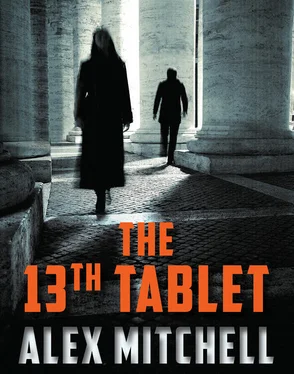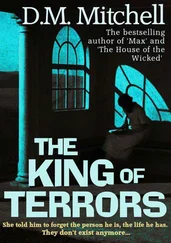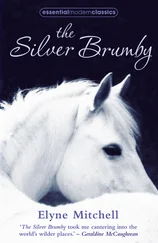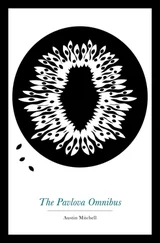In his office at Columbia University, Professor Nigel Hawthorn was pondering the letter of recommendation he had promised Mina he would write to the travel grant committee on her behalf. He was one of that peculiar brand of scholars who never left their office, certainly not to travel to the country they worked on. He deciphered cuneiform tablets from Nineveh but felt no need to know what Mosul looked like, or engage in joint projects with Iraqi scholars. He did not feel much of anything. In more ways than one, he was a sort of Victorian scholar stuck in the wrong century. He didn’t understand Mina’s need to travel, which he interpreted as an unscholarly pursuit. He remembered an email she had sent him when she had just moved to Iraq. It was full of descriptions of Mosul, its monuments destroyed by the war, the flavours and fragrances of the food. Her writing was more intoxicating than persuasive. She recorded the romantic beauty of ruined Abbasid homes in the old city and wrote at length about the piled-up houses that overhang the banks of the River Tigris. They seemed to her as though they had tried, at some point in time, to race for the riverbank and to have been stopped — just in time — by a magician’s wand.
Nigel was tired of what he saw as Mina’s inadequacies as a scholar. She had been a good student whilst in his care but he felt she had now strayed completely off rails and needed to face up to reality. He knew how damning his letter would be to Mina’s application, but he did not care that much. Picking up his fountain pen, he wrote quickly, and subtly in her disfavour. Without the support of her own PhD supervisor, any chance Mina had of getting this grant faded away.
December 2nd, 2004
In the arid landscape of the Mosuli countryside, a young boy was running as fast as he could down a dirt track. The twelveyear- old was as scrawny as they came but quite resilient. He slowed down as he approached a group of workers, where he spotted his hero, the tallest, strongest, coolest guy he’d ever met. ‘Jack, Jack!’ he shouted.
The ruggedly handsome 35-year-old American turned around to greet the boy with a smile. Jack had a square jaw, thick dark hair and piercing blue eyes that always seemed to see and know everything. But what Muhad liked best about Jack was the crescent-shaped scar above his left eyebrow.
‘Muhad? Catch your breath and tell me what all this excitement is about.’
‘Jack,’ said the excited boy, breathing heavily, ‘we found the qatan .’
Jack laughed. ‘The qa nat . You found the qanat . Now that’s great news. Take me there.’ He turned to the villagers, ‘Guys, take a break.’
Jack was relieved. He’d worked in this village and been around Muhad long enough to know that the young boy was not only very resourceful but usually spot on. At last, his small irrigation project might just take off. He had almost run out of funding and had he not met that old scholar at the university, he’d never have thought of looking for a qanat , one of the numerous ancient underground irrigation canals that crisscrossed entire regions of Iraq.
Muhad had run on ahead and was standing on top of a pile of debris, with a huge smile on his face. He was so proud to show off his find to Jack, whom he idolised. He had lost both his elder brothers in a roadside bombing a year earlier and Jack was the next best thing.
As Jack approached the small mound, he knew Muhad had found what they had been searching for. He unclipped his faithful trowel from his belt and started cleaning the clay canalisation. He looked up, trying to trace the progress of the qanat in an imaginary line. He wondered if it joined a spring or a subterranean river. He picked up his mobile phone and dialled a number.
‘Hi. Jack Hillcliff. May I speak to Professor Almeini?’ asked Jack, in his strong East coast accent.
‘Yes of course,’ said the secretary, patching him through to the professor’s office.
‘Hello Jack,’ said Professor Almeini, always happy to speak to the engineer.
‘Hi there Professor.’
‘How’s work going?’
‘Very well; we found the qanat .’
‘Wonderful! Was it in the quadrant we spoke of?’
‘Yes. Young Muhad found it this morning.’
The old scholar laughed. ‘I might borrow him someday; he could help me find some long lost papers in the departmental archives.’
‘The problem is I can’t see anything remotely watery in my line of sight. Also, even if I triangulate the potential direction it might have taken to find the water source, the landscape may have changed radically since antiquity.’
‘I agree and as we discussed, some of these qanats go for many miles underground.’
‘Yeah,’ said Jack, ‘I can’t start drilling holes all over the place.’
Both fell silent.
‘Jack, why don’t you pass by my office later today, and we will go over the maps once again. Maybe there is something we missed. I’ll also introduce you to someone who is more versed than myself in the archaeology of the region. I am a linguist after all.’
‘OK. That’s a good idea. See you later.’
He smiled at Muhad, patted him on the shoulder, and they walked back to the villagers.
Mina was a creature of habit. She always woke up at dawn, had a shower, spent half an hour doing yoga stretches, had breakfast and started work. But not this morning. It was past eight a.m. and she was still in bed, wide awake. She felt that Nigel, her PhD supervisor had let her down — after all, she had never officially interrupted her research.
She was trying to remember something that had troubled her in their last conversation when she visited him a few weeks before at Columbia.
‘I need to spend a few weeks in Safed in Israel,’ she’d said to Nigel.
‘Why?’
‘It concerns some odd discrepancies in the writings of Benjamin of Tudela.’
‘The 12th century Jewish traveller from Spain?’
‘Yes. You remember his descriptions of Mosul and the ruins of Nineveh?’
‘Yes. I thought the other traveller was much more interesting. What was his name again?’
‘Petachiah of Ratisbone. Yes, he writes more on Nineveh but hear me out, Nigel. On his way to Mosul, Benjamin de Tudela passed through many cities in Palestine. He recorded whether Jews lived there or not, described synagogues. He also recorded the numbers of Jewish inhabitants and did this throughout his travels.’
‘And?’
‘As you know, Safed blossomed as a centre of learning and mysticism for Jews later in the 16th century, the whole kabbalistic renaissance, and so on. But what I find surprising is that according to Tudela’s writings, he found no Jews there in 1170.’
‘What’s so strange about that? Maybe there weren’t any Jews then even if it did become an important place later on.’
‘Maybe. But Tudela’s other accounts were all accurate, except for this one. I found a piece of evidence in the British Library which contradicts it entirely: as you know, Tudela’s Book of Travels was actually written by an unknown author who compiled his travel notes.’
‘I know that, so what?’
‘Well, a number of specialists believe that this anonymous compiler picked and chose the material and did not insert everything into the manuscript. I think they’re right, and I can prove it.’
‘Go on.’
‘Among the other works bound to the manuscript, an essay by Maimonides and various other commentaries, there were a few pages of Arabic poetry. No-one has paid much attention to them until now because they were in Arabic and not in Hebrew and because they were never inserted in the compiled manuscript of Tudela’s travels. But, I think Benjamin of Tudela copied these poems himself during his travels, because he also jotted down a few notes among them.’
Читать дальше












